How do you like your morning brew? If you're one of the majority of us who like their coffee & cocoa sweet, adding a spoonful of sugar makes all the difference. But while there are lots of coffee sweeteners you can use, not all are created equal.
Today we're digging into the most common sugar substitutes for coffee and hot cocoa, including the best sugar alternative for coffee you may never have even heard of. Because if you carefully consider your sugar substitute for coffee, the right one will allow you to enjoy your cuppa with all of the delicious and none of the guilt.
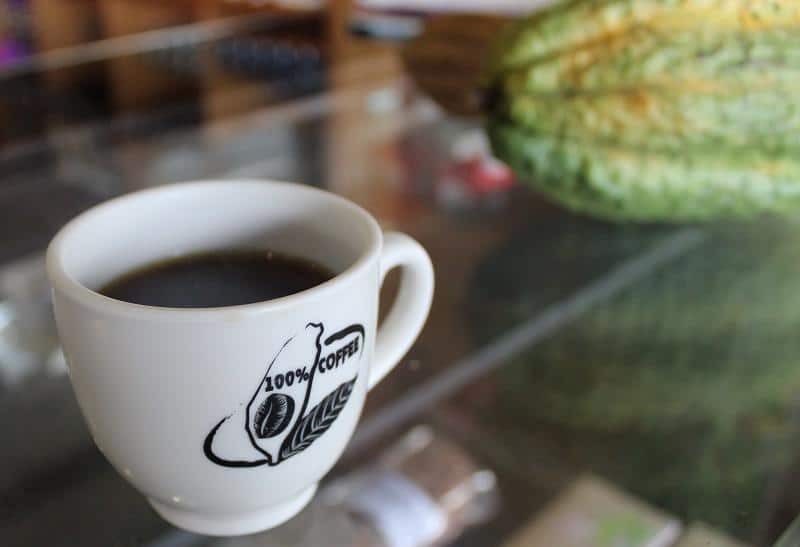
Jump to:
Best Sugar Substitutes for Coffee
If you don’t like the experimentation involved in trying different types of natural sweeteners for coffee or hot cocoa, try one of the twenty or so explored below.
Date Syrup
Date syrup is a natural sugar replacement for coffee that's rich in fiber & minerals, making it a healthy alternative to white sugar. It's made directly from dates, which are high in antioxidants and have been found to have anti-inflammatory properties.
Date syrup has a rich, caramel-like flavor that goes exceptionally well with coffee. It also has a lower glycemic index than regular sugar, which means it does not cause blood sugar spikes, though it's still a form of sugar and should be consumed in moderation.
Xylitol
Xylitol is a low-calorie sweetener that has been found to have distinct dental health benefits. It's a sugar alcohol that's not only sweet, but it can help prevent tooth decay and gum disease by inhibiting the growth of harmful bacteria in the mouth.
Xylitol is about as sweet as sugar, but while not calorie-free, it does have fewer calories & a low glycemic index. It can be used as a sweetener in place of sugar in coffee or other drinks, but it can also cause digestive issues in some people if consumed in large amounts (including myself!).
But because of how it's processed, xylitol is the best coffee sweetener for vegans, in my opinion.
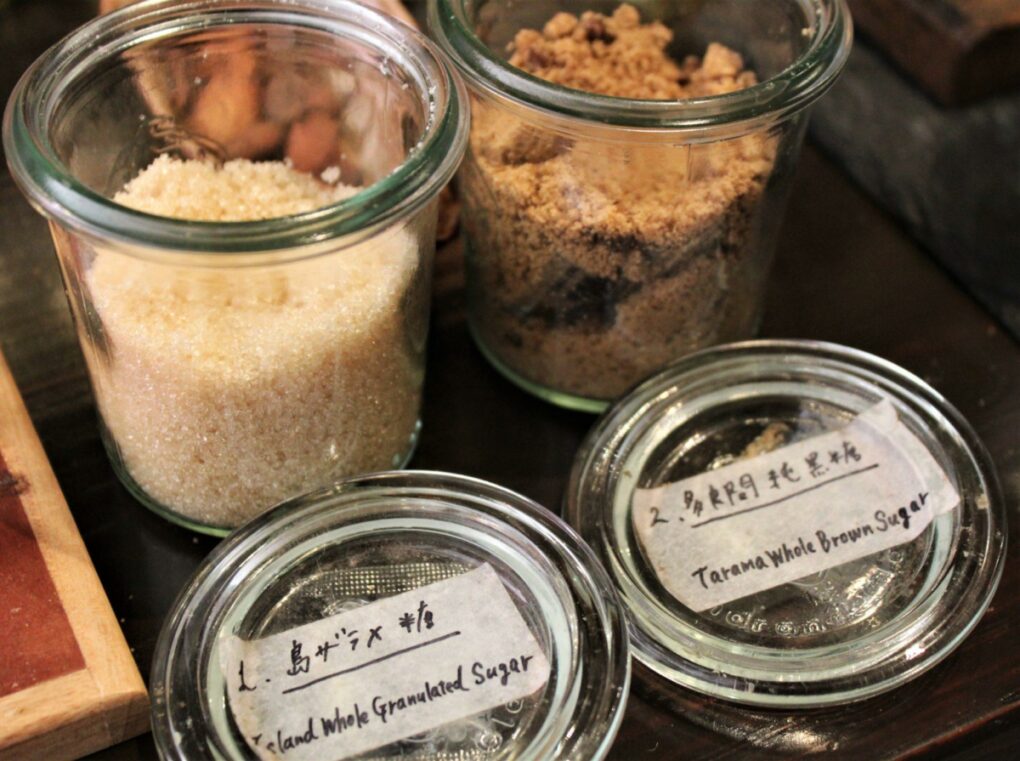
Panela (Unrefined Cane Sugar)
Wait, but isn't that still sugar? Panela is made from sugar cane; it's true, but hear me out— panela retains most or all of the original cane molasses and has a very dark brown color, with a mild minerality due to the retained nutrition.
It also has many other local names. It’s called muscovado (Mauritius, Philippines), piloncillo (Mexico), and jaggery (India), among others. If you like a more complex flavor for your coffee or drinking chocolate, this may be a good option.
How does this fare with refined sugar? Both types have the same sweetness, however, unrefined cane sugar offers a unique taste and aroma, like a smoother version of coconut sugar (discussed below).
Molasses
Another great natural sweetener for coffee & drinking chocolate is molasses, a by-product obtained during the processing of sugar from sugarcane. Note that regular molasses is different from blackstrap molasses or unsulfured molasses, which has a very strong mineral undertone.
It does still come with health benefits still, however, as it contains important nutrients and antioxidants. This makes it a better option for hot cocoa than refined sugar. However, it still has a high sugar content, which can be harmful when consumed in excess.
Aside from that, this sweetener has a strong, spicy flavor that will do more than just sweeten your cocoa; it will change the flavor as well. So if you are looking into trying this out, be sure to add only ½ teaspoon of it on your first few tries.
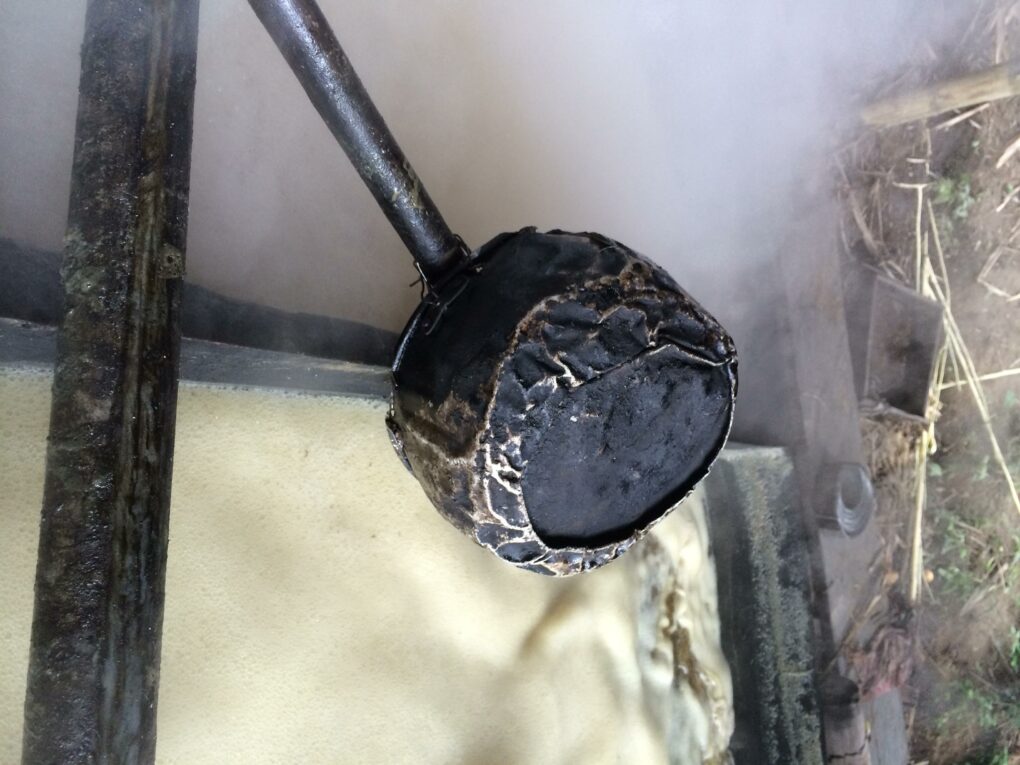
Allulose
On top of the list is my new favorite sugar swap for coffee: allulose. This plant-derived sweetener is like many of the others on our list in that it's not actively bad for you (like sugar), and it also lend drinks and desserts a distinctly sweet flavor.
It's typically produced by converting fructose— which is found in corn and other plants— into allulose through a process called enzymatic conversion. This complicated process results in a product that is nearly calorie-free and has a similar taste and texture to regular sugar.
These qualities make allulose a great sugar substitute for coffee due to its low calorie count and its ability to mimic the taste and texture of regular sugar. In fact, of all the sugar alternatives for coffee listed here, I think allulose is the best sweetener for coffee from a nutritional standpoint.
Unlike other sugar substitutes, allulose also doesn't have a bitter aftertaste, making it arguably the healthiest sugar for coffee, and a great choice for coffee lovers who want to reduce their sugar intake without sacrificing taste.
Local Honey
If you want to quit refined sugar, the best sugar substitute for coffee is local honey. But not matter what type you use, honey, which is produced by bees, is a natural sweetener that requires next to no processing before use.
Many prefer this sweet, thick liquid honey as a healthier alternative to refined sugar because it provides some vitamins and minerals that add a slight nutritional boost to your cocoa. However adding honey to coffee or hot chocolate does add both sugar & calories, and changes its overall flavor. Use sparingly.
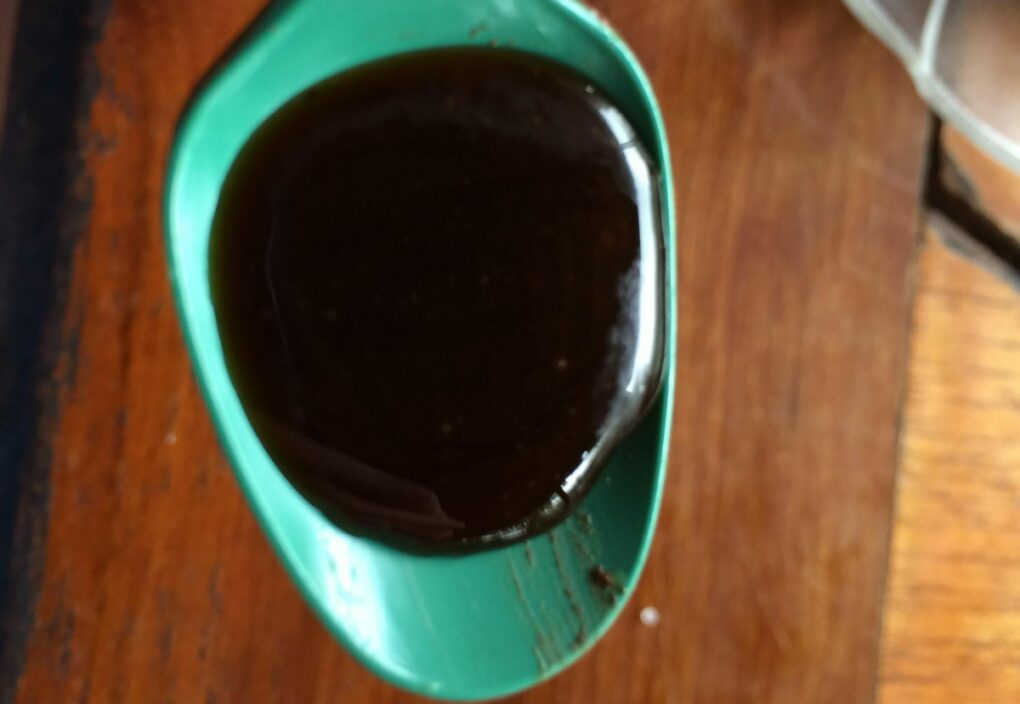
No Calorie Coffee Sweeteners
Saccharin (Sweet 'n' Low)
Saccharin is a good sugar substitute for coffee as it's calorie-free and does not have an aftertaste. While it has been approved by the FDA as a safe alternative to sugar, it's also had a bad rep over the last several decades due to some notorious studies in rats in the 1970's which showed it caused cancer.
However those studies have not shown similar results in humans, so the synthetic sweetener, about 300 times sweeter than sugar, is still popular to this day (you probably know it better as Sweet 'n' Low, or the pink sugar packets). It is also stable at high temperatures, making it a good choice for hot beverages like coffee or cocoa.
Stevia
A low-calorie option you can check out is Stevia. It’s a natural sugar substitute that is extracted from the stevia plant (the leaves). At around 300 times sweeter than sugar, you don’t have to worry about added calories and increased blood sugar levels when using this healthy sweetener for coffee.
But stevia also has some drawbacks. While it's arguably the healthiest sweetener for coffee, it's also more expensive than sugar and most other artificial sweeteners. It may also cause side effects and allergic reactions in a small number of people.
Also, not everyone likes the taste of stevia. Some of those who try it in their coffee find it bitter, while others describe it as similar to menthol (much like the cooling effect of sugar alcohols).
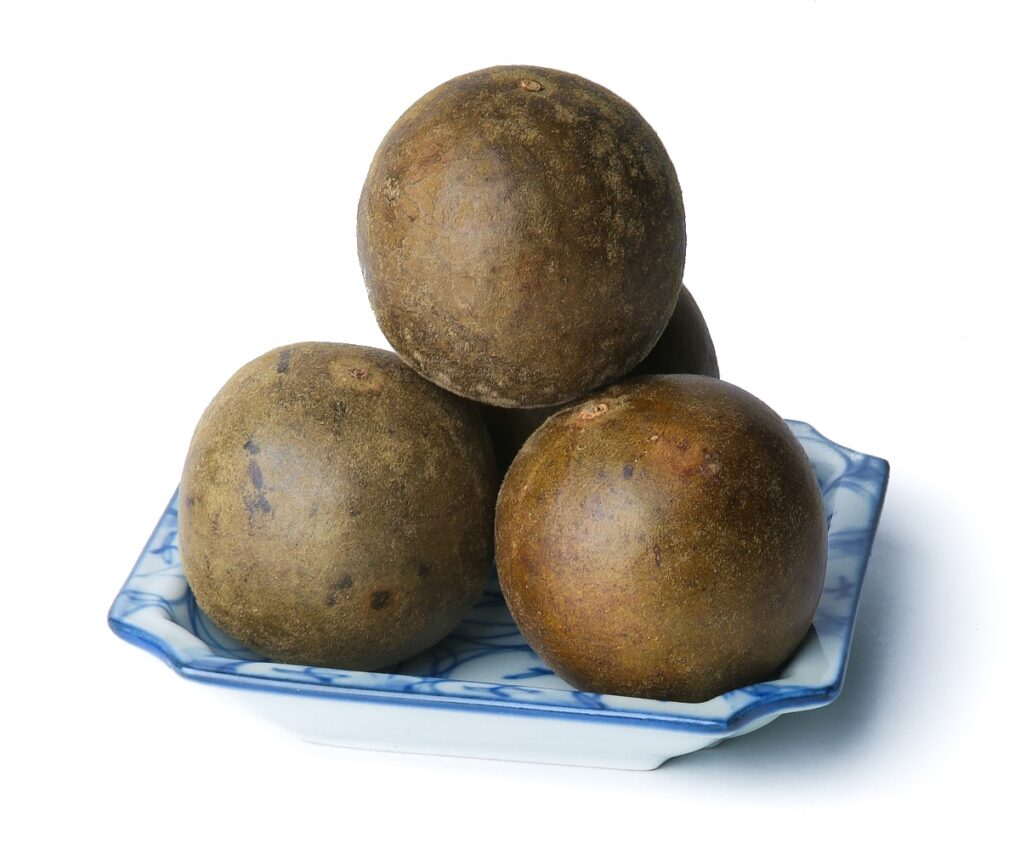
Monk Fruit
Another healthy sweetener is a pure monk fruit sweetener, though it won't dissolve as nicely as sugar. Monk fruit is a naturally sugar-free and calorie-free extract derived from dried luo han guo fruit, rarely but skillfully used in some sugar-free chocolates.
Why is there such a fuss about this? It’s because monk fruit sweeteners are a good option for people conscious of their weight. Compared to some artificial sweeteners, this has no evidence of any side effects.
But even though monk fruits are a healthy sugar substitute, they're alos quite challenging to grow, harvest, and dry. It’s also expensive to import and process them, so there's a limited supply in local stores.
Sugar Alcohols (ex. Erythritol)
Next on the list of sugar-free sweeteners are sugar alcohols. They are known as reduced-calorie sweeteners because they have fewer calories and carbohydrates than sugar. Despite they name, much like chocolate liquor, sugar alcohols contain no alcohol.
These coffee sweetener alternatives may be helpful for weight loss, although they're not the secret to get fit. Sugar alcohols do not have the same negative effects of sugar, such as causing dental cavities. But they can upset your stomach when eaten in large amounts.
One example of a sugar alcohol is erythritol. What makes it different from the others is that it has no calories, and doesn’t seem to as commonly cause the same digestive problems as other sugar alcohols. For this reason, erythritol is also popularly used in keto chocolates.

Cinnamon
If you're wondering how to sweeten coffee without sugar, the answer is cinnamon, as it adds a sweet and spiced flavor without adding any calories. If you're unfamiliar, it's a spice made from the inner bark of the cinnamon tree, and has naturally anti-inflammatory properties; it may even actively help lower blood sugar levels.
To use as a sugar alternative, cinnamon can be added to coffee grounds before brewing or sprinkled on top of coffee drinks for a sweet and spicy flavor. However, it is important to note that cinnamon should be consumed in moderation as very large amounts can be toxic.
Vanilla Extract
Another natural sweetener that goes well with coffee or chocolate is vanilla— I can guarantee it's anything but plain. Vanilla extract is made by heavily pressing the liquid out of fresh, plump vanilla pods and mixing it with water and ethanol.
It has a potent aroma of vanilla, which actually helps to both boost the sweetness and the bitterness of hot chocolate without adding any calories. This is part of what makes it a healthy sugar substitute for coffee, as adding vanilla extract to your cup can boost your cuppa with a rich, buttery, and nearly sweet flavor. It also carries some health benefits, too.
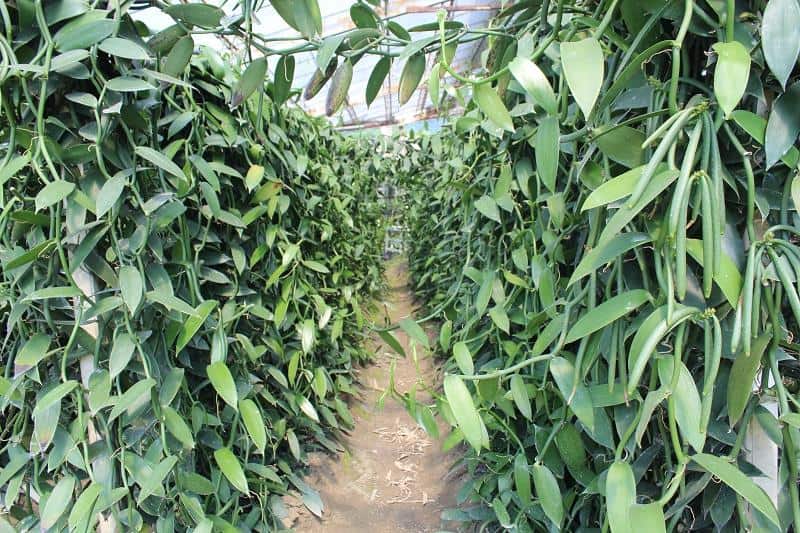
Splenda
I’m sure you’ve seen those signature yellow packets of Splenda in many coffee shops.
Splenda is a go-to powdered artificial sweetener. It is made of sucralose, which is a zero-calorie chemical similar in sweetness to sucrose. But you have to still consider the pros and cons of chemical additives it contains.
This sweetener goes through an artificial process that removes the sugar molecules that are responsible for the calories. And what do you get as a result? It tastes sweeter than sugar, remains completely unprocessed by your body, and produces a quite noticeable artificial taste.
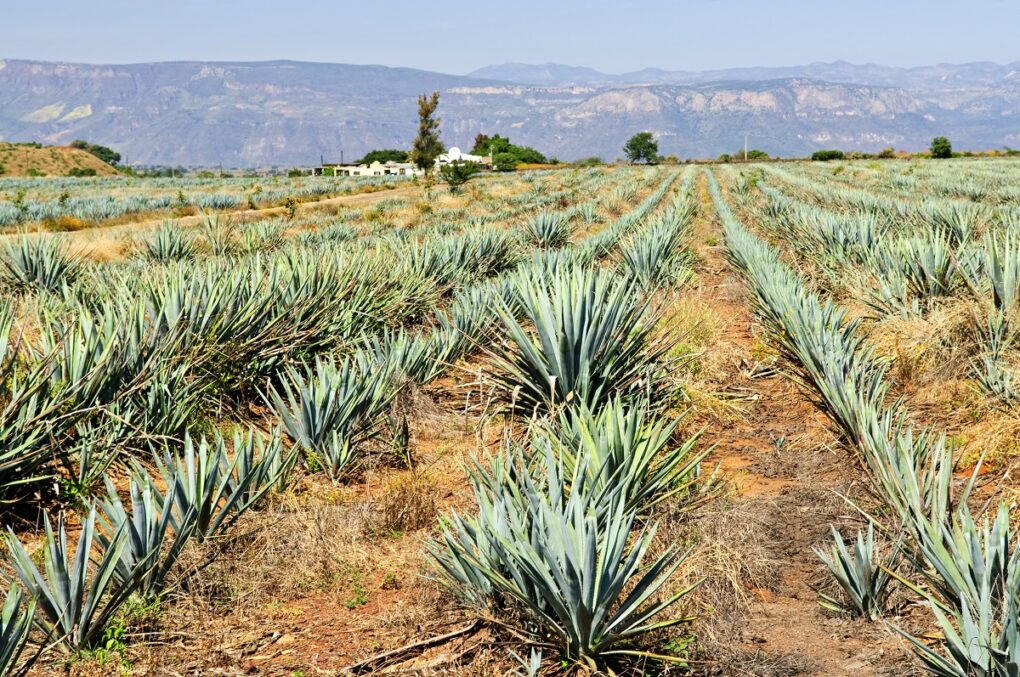
Natural Sweeteners for Coffee & Cocoa
Agave
Agave nectar or syrup, is a natural sweetener that is obtained from processing several species of agave. It's also widely available and popular these days, which has only come about in the last 10 years or so, since the paleo craze hit.
When adding agave syrup to coffee, it delivers a mild caramel flavor combined with a full-bodied mild bitterness, which is less noticeable with dark roasts and more pronounced with lighter roasts. This sweetener has the same consistency as honey but it has a lower glycemic index.
Some reports have shown that because of its higher levels of fructose than plain sugar, it has greater potential to cause adverse health effects. Several natural sweeteners, such as stevia and sugar alcohols could be healthier choices than agave syrup.
Coconut Sugar
Similar to agave, coconut sugar also has a low glycemic index. But this must also be consumed in moderation.
This has a deep and earthy flavor and has a more distinctive and unique taste when mixed with coffee or cacao. It also contains more vitamins and minerals than the more refined white sugar and has a lovely caramel-like flavor.
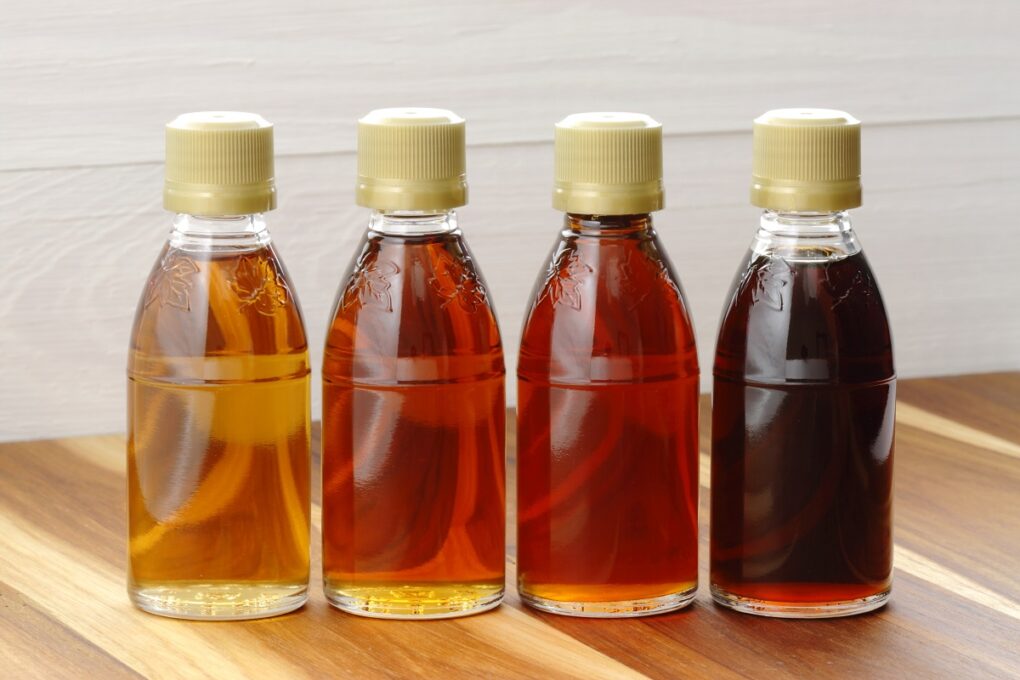
Maple Syrup
Maple syrup is a thick, sugary liquid that’s made by cooking the sap of maple trees that contains small amounts of minerals, and has anti-inflammatory and antioxidant effects. This popular sweetener can also be added to your latte or hot chocolate, if you enjoy nutty flavors.
However, maple syrup contains high concentrations of sugar, so it should be used in moderation, like replacing osme of the sugar in my maple syrup chocolate chip cookies. And try not to mistakenly purchase pancake syrup, which is often made from corn syrup and will not offer you any of the benefits of natural maple syrup.
Yacon Syrup
Yacon syrup is a natural sweetener that's both low in calories and has a low glycemic index, making it a great sugar alternative for people with diabetes. It's made from the root of the yacon plant, which is a tuber native to South America.
Yacon syrup contains fructooligosaccharides, which are prebiotics that can promote gut health by feeding the beneficial bacteria in the gut, much like in yuca root. Yacon syrup also contains antioxidants and has been found to have anti-inflammatory properties.
Its sweet, caramel-like flavor pairs well with coffee, making it a great sugar swap.
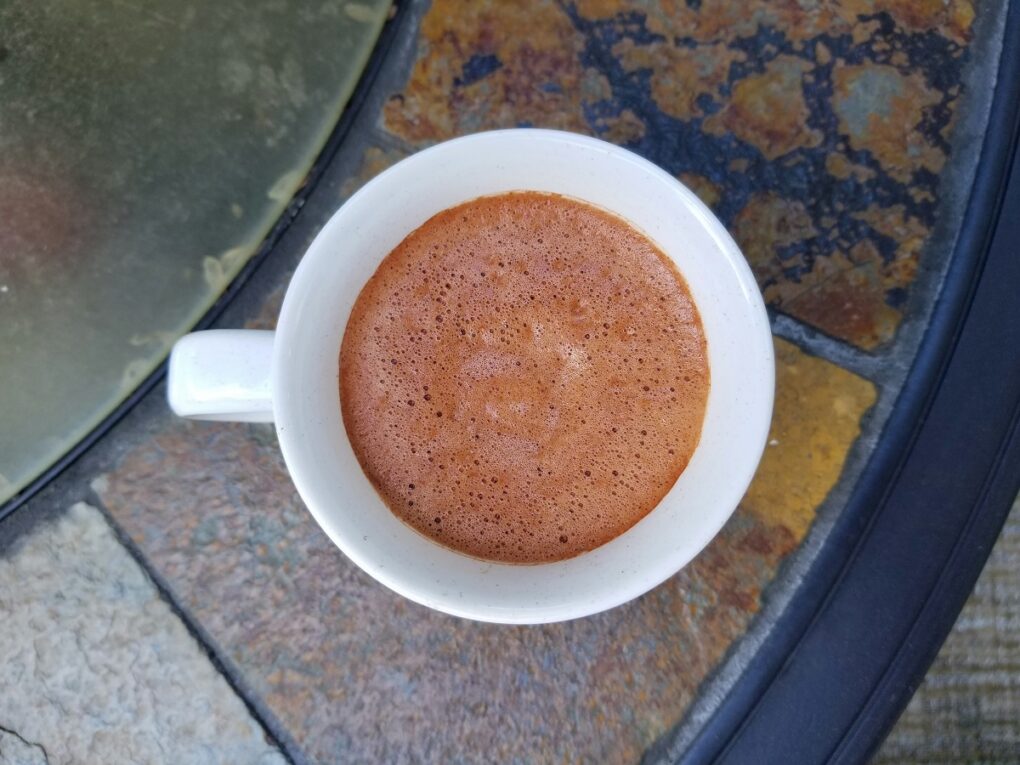
Tapioca Syrup
Tapioca syrup is a natural sweetener made from cassava root. It has a mild fruity taste that doesn't overpower the flavor of coffee, and although it's not calorie-free, it doesn't cause blood sugar spikes like regular sugar.
Tapioca syrup is also low in fructose, which can be beneficial for people who are sensitive to fructose. However, it's important to note that tapioca syrup is still a form of sugar and should be consumed in moderation.
Frequently Asked Questions
There is no one type of sugar that is definitively the healthiest for coffee, as it depends on individual dietary needs and preferences. However, calorie-free sweetners like stevia, monk fruit, and allulose are some of the healthiest picks.
Natural sweeteners like honey, maple syrup, and agave nectar are often considered a healthier substitute for sugar in coffee.
Stevia is often considered healthier than sugar because it is a zero-calorie sweetener that does not raise blood sugar levels, making it a good option for people with diabetes or those trying to reduce their sugar intake.
Stevia is often considered better than Splenda because it is a natural sweetener derived from the Stevia rebaudiana plant, while Splenda is a brand name for sucralose, an artificial sweetener that's chemically derived from sugar. Some people prefer natural sweeteners like stevia because they're overall less processed and perceived as more "natural."

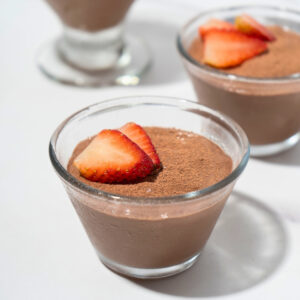
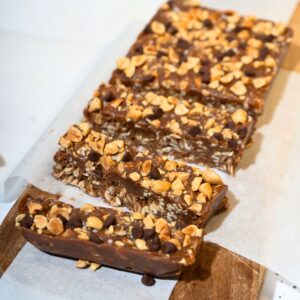
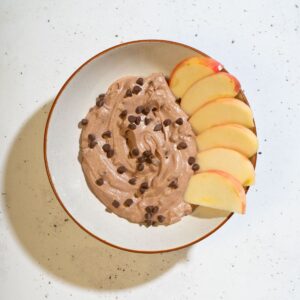
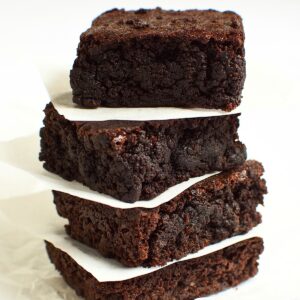

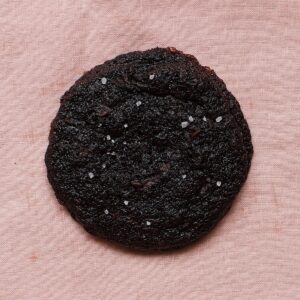


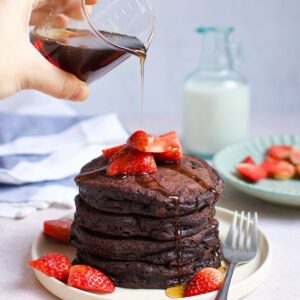


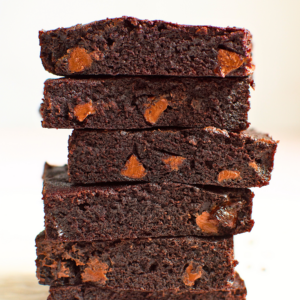
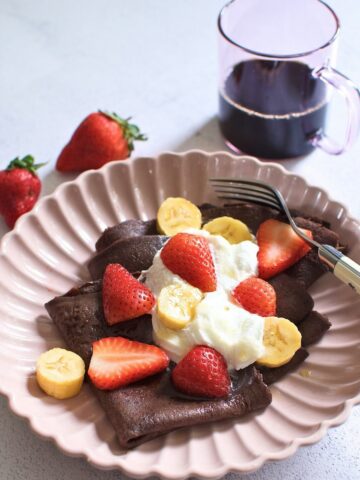
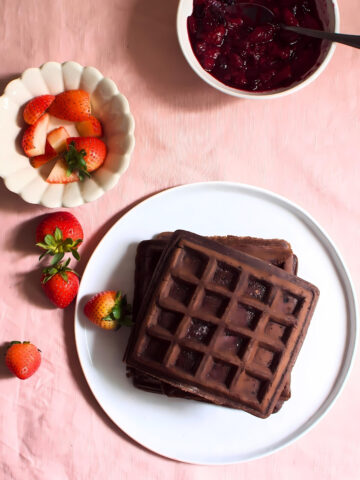
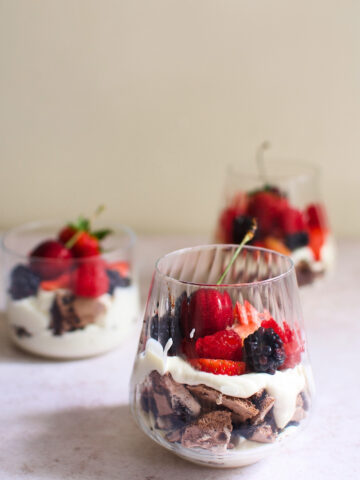
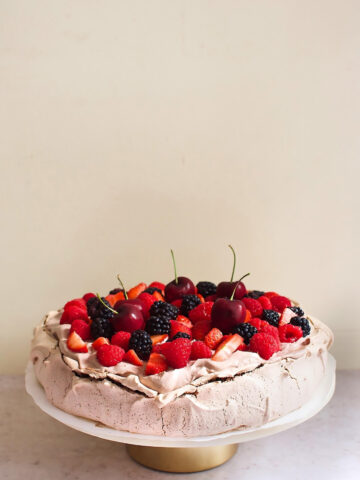
Comments
No Comments